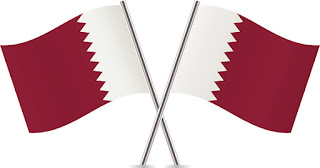Qatar's Hamad Port -- It's Strategic Role and Recent Recognitions

A Hero in Qatar's Successful Resistance to the Blockade On June 5, 2017, four neighboring countries -- Saudi Arabia, UAE, Bahrain, and Egypt -- imposed a blockade of land, sea, and air routes to and from Qatar. In my book chapter , on Qatar's strategic and successful responses to the blockade, I discussed the role of the Hamad Port. See Paula Marie Young, The Siege of Qatar: Creating a BATNA that Strengthened the Tiny Country’s Negotiating Power , QATAR: POLITICAL, ECONOMIC AND SOCIAL ISSUES (Nova Science Pubs. 2019). In that chapter, I said: Access to alternative ports played a bigger role in Qatari planning. Its new Hamad Port, the largest port in the Middle East, opened for what appears to be a soft-launch in December 2016, with an accelerated opening of other facilities at the port shortly after the siege began. Qatar made a QR 27 billion ($7.3 billion) investment in the site. Port officials reported an intent to expand its capacity throu...







